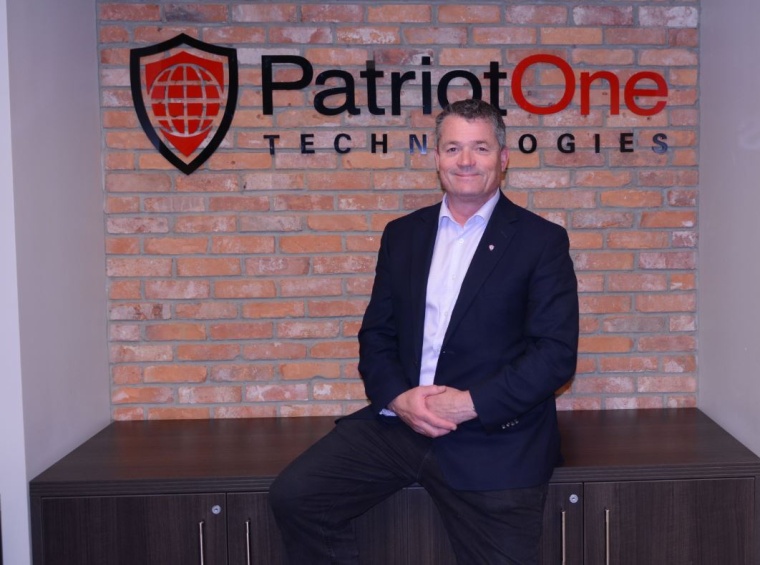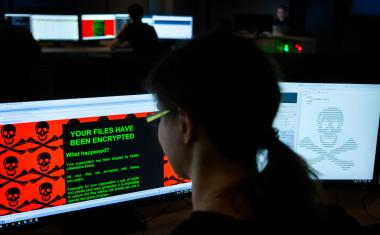Pandemic Solutions: AI To The Rescue
Surveillance systems might not immediately spring to mind when thinking about the first defenses that communities can use against the spread of Covid-19.

However, with over 770,000 deaths recorded worldwide, there are serious concerns about global health, as well as the societal and economic impact of this virus. Martin Cronin, CEO of Patriot One, gives us some indicators on potential solutions to combat the pandemic.
The first wave is hardly over; keeping people in lockdown is becoming increasingly difficult. And everyone is now seeing the socio-economic effects of this 21st-century global pandemic. The crisis has plunged the global economy into the worst recession since World War II, so it’s no surprise that governments around the world want their citizens to get back to work. A key part of this is deploying people, policies and technology platforms that can aid authorities in managing, tracking and mitigating this microbial threat and warning citizens who may be infected to stay home or get tested.
Controlling the Covid-19 pandemic rests on the detection and containment of infection, the interruption of community transmission and its consequent impact on human health. Vaccine development is underway but it is still speculative as to when it will be globally available. While this is the ultimate goal to eradicating the virus, we can’t afford to wait to help contain the rate of infection. Therefore, we need to look at new technologies already known to work, and adapt them to find alternative ways of controlling the spread of the virus.
One of the solutions being explored is incorporating Artificial Intelligence (AI) and machine learning into existing video technologies. In the case of surveillance cameras, this could mean government, healthcare and security professionals can monitor public spaces and environments through the combined use of digital and thermal video cameras and video management systems (VMS), to not only map how the virus may be moving but also ensure that public safety measures are being enforced.
Leveraging AI to Reduce Risk
Critically, technology must be capable of both identifying and tracking the virus. Early detection of Covid-19 could help to control infection rates, lessen the burden on healthcare services and ensure that individuals with symptoms are made aware. An unobtrusive system that is adaptable enough to be deployed across a range of environments where the public gathers in enclosed spaces is needed to improve the effectiveness of today’s security systems.
Video management systems with AI functionality at their core and operating on connected devices can be efficiently deployed remotely. From a central server to technologies across a company’s network, all efficiently rolled out to allow for the detection of indications of an outbreak can begin to quell this virus. AI has the potential to detect those displaying symptoms of infectious disease, without requiring physical human contact – a truly touchless experience, and safe as well.
Computer vision technology has existed for over a decade. Now, with the power of real-time AI-driven software, integrated with current VMS systems, threats can be identified for immediate response. This can be done in a non-intrusive way that does not disrupt people’s day-to-day lives or invade their personal space, privacy or civil liberties. This may be an issue with other systems, such as queuing for forehead-tap temperature checks or walking through a disinfectant tunnel. Using video analytic software, traditional video cameras can be enhanced into remote video health screening tools, with capabilities such as:
Face mask compliance detection: security personnel can be alerted when people are not complying with facial mask requirements using object recognition/computer vision technology. Although regulation around mask use currently differs from one jurisdiction to another, it is widely accepted that specific personal protection equipment (PPE) can assist in preventing the spread of this viral pathogen. This technology would be particularly useful in environments such as hospitals, retail facilities and schools, where members of the public gather in an enclosed space.
Elevated body temperature screening and identification: individuals are scanned for elevated body temperature when entering a building. If the temperature is outside a nominal range, an alert is transmitted to onsite security for further action. The benefits of this would be seen in locations such as care homes and offices, or indeed any venue that needed to quickly screen individuals or a queue of people entering a facility at a controlled checkpoint.
Social distancing and large gatherings: data captured by surveillance cameras can detect how close people are to one another. If they are not complying with government guidelines, an automated alert message could be activated to have onsite security remind them to maintain a distance. Similarly, they can detect large groups of people who may be interacting in close proximity and therefore increasing the possibility of multiple infections, prompting an automated response or police intervention if required.
The Future of Covid-19 Tracing Strategies
As we look ahead to the future of public security in a world impacted by this global pandemic, detecting and tracing an infectious disease is the cornerstone for effective transmission control and prevention. It is clear that AI-driven technologies have a role to play in making this possible, and thus making our communities safer. Governments must coordinate with today’s healthcare and security services as well as technology providers to pool the expertise needed to best implement and integrate these AI technologies for the public good. They need to work together, with a clear strategy in place to respond to threats and improve community safety.
Author: Martin Cronin, CEO, Patriot One













